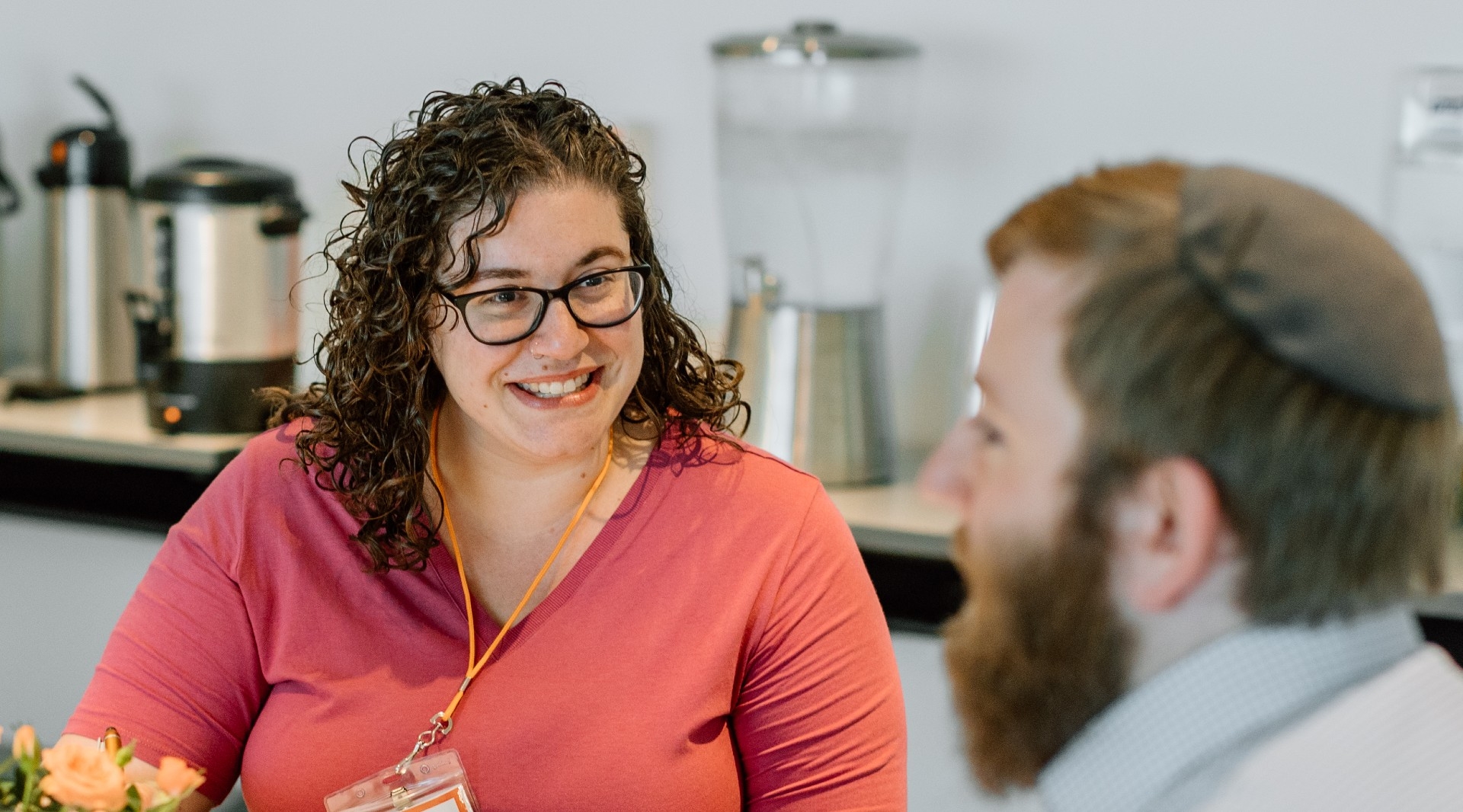The work of Jewish community professionals has become a lot more challenging since Oct. 7, adding heightened concerns about antisemitism, security and conflict education to the already demanding work of community building.
“Jewish professionals have been under a constant state of stress since October 7,” said Keren E. Fraiman, dean and chief academic officer at Spertus Institute for Jewish Learning and Leadership. “Leadership is very lonely, especially now.”
That’s precisely why now is an excellent time for Jewish community professionals to invest in themselves and in their career, Fraiman said.
Chicago-based Spertus Institute offers a Master’s of Arts in Jewish Professional Studies (MAJPS) program that is designed to fit the busy schedules of communal professionals, with both online and in-person components. There are still some spots available for the cohort beginning this fall.
In addition to offering students opportunities to develop new skills and build their professional networks, the MA program provides a safe space for future Jewish leaders to learn and grow together as they advance their careers.
“What we found immediately after Oct. 7 with last year’s cohort of community professionals was that taking the time to invest in learning, reflecting and connecting with other community professionals was actually invigorating for them,” Fraiman said. “Many students noted that the learning increased their emotional bandwidth and gave them tools and skills to go back and give more to their communities.”
Spertus Institute’s MAJPS program combines nonprofit management with Jewish studies and leadership training. Two tracks are available: a 30-month MA program for Jewish professionals, and an 18-month accelerated executive MA program for professionals with 12 or more years in the field.
Classes are taught online, with one or two in-person sessions in Chicago each year. Tuition for the entire MA program can be as low as $10,000 after scholarships and stipends. Spertus is currently accepting applications for both tracks.
Courses on the nonprofit side cover advanced topics in management, planning, budgeting and donor relations, while Jewish studies classes include studies in antisemitism and history, leadership, and values. Fraiman herself teaches courses on learning organizations, conflict management and the complexities of modern Israel.
Typical candidates may work in Jewish day schools, Jewish federations, Hillels, JCCs, summer camps, foundations or other Jewish nonprofit organizations.
“Every single course I took was applicable to my career,” said Alexis Doctor, a recent MAJPS graduate who enrolled in the program after 20 years working for the Jewish community in Vancouver. “The combination of business topics related to Jewish nonprofit management with expanded learning about Jewish history was right up my alley.”
Doctor said she had always been interested in pursuing higher learning to advance her career but hadn’t been sure how to proceed. A colleague suggested she get an MBA, but Doctor wanted higher education related to the Jewish professional field.

Spertus Institute was founded in Chicago to serve as a nondenominational training ground for Jewish educators and communal professionals. (Maggie Russo)
The MAJPS program at Spertus turned into one of the most rewarding things she’s done in her career, Doctor said. She learned how nonprofit financing works from classes on strategic management, developed tools to help advocate for Jews in her community amid antisemitism, and found ways to have complex conversations about controversial issues within her community — and help others do the same.
Fraiman said the program also helps professionals identify new opportunities in the Jewish world.
“Some of our students began their careers at a certain place because they loved to work with the Jewish community, but a few years later they began to feel stuck,” Fraiman said. “When they enter our program, they suddenly find a whole new world opening up to them.”
Over 80% of graduates get a promotion or raise within a year of completing the program, often while they are still in the program, according to Fraiman.
Audra Kaplan, a Chicago-based clinical psychologist and interim director of community wellness and inclusion at Camp Ramah in Wisconsin, said being in the program over this past year was grounding amid all the challenges that ballooned after Oct. 7.
“It was very healing, allowing us to discuss how the situation affected us and focus on using the experience to develop ourselves as leaders,” said Kaplan, who earned an executive track MAJPS degree. “The professors helped us process the experience and provided a safe environment to share our feelings.”
MAJPS cohorts usually comprise 12 to 15 students from around North America, drawing from the full Jewish spectrum of observance and religious denomination. Applications are still being accepted for the upcoming cohort this fall. Interested candidates may contact Amie Barrish at abarrish@spertus.edu or visit Spertus.edu/leadership.
Spertus Institute, which is celebrating its 100th anniversary this year, was founded in Chicago to serve as a nondenominational training ground for Jewish educators and Jewish communal professionals. It offers a wide range of master’s- and doctoral-level programs in Jewish studies that are accredited by the Higher Learning Commission, the largest regional accrediting body in the United States.
Particularly now, it also provides an opportunity for Jewish community professionals to advance their careers in a nurturing Jewish space.
“I would encourage anyone thinking of building a career as a Jewish professional to take this program,” Doctor said. “I wish I’d done this 10 years ago.”
JTA has documented Jewish history in real-time for over a century. Keep our journalism strong by joining us in supporting independent, award-winning reporting.
This article is sponsored by and produced in collaboration with Spertus Institute for Jewish Learning and Leadership, a Chicago-based institution of higher Jewish learning dedicated to real-world action. This story was produced by JTA’s native content team.
More from Spertus Institute for Jewish Learning and Leadership





